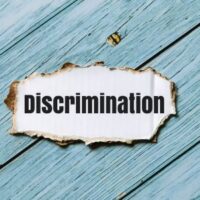Filing a Florida Versus Federal Employment Discrimination Charge

No matter what type of discrimination you suffered at work, there is a specific legal process for enforcing your rights under both US and Florida statutes. The most common law that employers violate is Title VII of the Civil Rights Act, but there are many others. The Equal Employment Opportunity Commission (EEOC) and Florida Commission on Human Relations (FCHR) are tasked with enforcement of these laws, and you are required to work with these agencies first when pursuing a charge for discrimination. It is necessary to exhaust your administrative remedies before filing a lawsuit in court.
However, when there is more than one option in terms of enforcement, you might wonder if you gain an advantage by choosing one route over the other. Fortunately, both EEOC and FCHR are able to work together to enforce anti-discrimination statutes. Your Florida employment discrimination lawyer will advise you on what best suits your situation, but an overview is useful.
Florida employees, but there is some overlap. Florida has a statute similar to Title VII – the Florida Civil Human Rights Act. Therefore, the EEOC and FCHR could potentially have oversight over a single charge of discrimination.
However, filing with both agencies creates unnecessary duplication. As such, the laws enable a work sharing agreement between them. The EEOC and FCHR will support each other in processing claims of discrimination.
Cross-Filing Discrimination Charges: The work sharing arrangement enabling EEOC and FCHR to participate in processing your claim is not automatic. You must notify one agency that you are submitting your charge of discrimination to the other. To do so, you indicate that you are “cross-filing” so that each agency is aware of the case.
In some cases, there may be a reason to file a separate discrimination charge with each agency. This strategy may be helpful when there are differences in the administrative rules. Plus, keep in mind important deadlines.
- With a Florida claim, you must file with FCHR within 1 year of the date of the incident of discrimination.
- When filing a charge with EEOC, you have 300 days to submit your documents.
Note that you preserve these deadlines with both agencies when you cross-file, but you must keep in mind the 2-year statute of limitations if you move forward with court action.
Damages for Successful Discrimination Claims: Considering the compensation you can recover by law in an employment discrimination case, you could file with either EEOC or FCHR. Through the proper legal process, you can obtain damages for:
- Back pay and front pay;
- Interest;
- Attorneys’ fees;
- Legal costs; and,
- Pain and suffering.
Our Palm Beach Gardens Employment Discrimination Attorneys Will Advise You
There are strategic considerations when looking at whether you should file an employment discrimination charge with FCHR or EEOC. Therefore, it is wise to trust our skilled team at Sconzo Law Office. Our experienced employment lawyers serve clients throughout Palm Beach County, so we have in-depth knowledge of the best strategies for your case. Please call 561-279-6114 or visit our website to set up a free consultation today.
Source:
eeoc.gov/statutes/title-vii-civil-rights-act-1964

